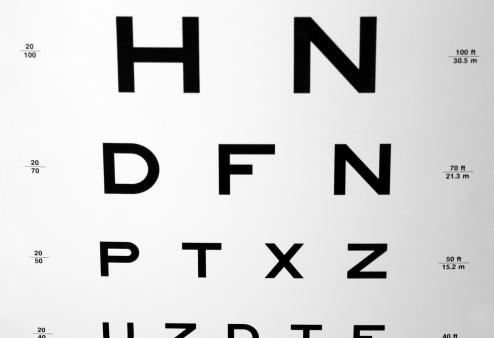
If your world is suddenly looking blurry, you have options. Here’s what you need to know about cataracts: causes, treatments, and, yes, cures.

Being an octogenarian has many benefits: the acquired wisdom of 80 years, excellent stories, and maybe even a couple of great-grandkids. By that age, many of us have learned to look on the bright side. But what you see over there may look a little fuzzier than it used to.
That’s because half of all Americans have had a cataract by that age. It’s a very common issue, but it’s still troubling when you can’t see as clearly as you used to.
The good news: You don’t have to see the world behind frosted glass. You have some control. Here’s what you need to know about cataracts: causes, treatments, and, yes, cures.
What Exactly Are Cataracts?
When we’re born, the eye’s lens, which is made of water and protein, is crystal clear. As we age, these proteins change and clump, which makes that lens more like a foggy window than a freshly cleaned one. That’s a cataract.
It's worth noting that cataracts aren't a given as you get older: Protecting your eyes from the sun, quitting smoking, and eating a healthy diet might help prevent cataracts from forming, according to the National Eye Institute.
Once a cataract does start to develop, the change often happens so slowly that it is hard to notice. Cataracts can happen in one or both eyes, but they don’t spread from one eye to the other.
Also, while age-related cataracts are more common, there are other types of cataracts: Congenital cataracts appear at birth, for example, and some eye injuries can lead to the development of cataracts.

How Can You Tell If You Have a Cataract?
Struggling to make out the bottom edge of your flat-screen TV? Skipping nighttime car trips because of the glare? Noticing haze when you’re walking in the park on a clear day?
Any of these can be a hint you have a cataract, according to ophthalmologist and cataract surgeon Ravi Goel, M.D., clinical spokesperson for the American Academy of Ophthalmology.
“Whenever the patient’s vision is not as sharp as it used to be,” he says, “it might be a sign.”
What Are the Treatment Options for Cataracts?
Often, surgery can fix a cataract. During the procedure, the surgeon makes a small incision in the eye to remove the lens and replace it with an artificial lens implant called an intraocular lens (IOL). Your doctor will talk to you and measure your eyes to choose the IOL that is best for you.
Cataract surgery is one of the most successful and safest procedures out there, but it isn’t for everyone. If crystal-clear vision isn’t super important to your life or your vision isn’t bothering you, you may want to hold off and monitor it.
Risks of the surgery include infection, bleeding, and swelling of the eye, as well as retinal detachment. But remember, even when these rare complications happen, they are usually treated successfully.
Is Cataract Surgery Right for You?
Let’s say you’re retired, live at home, don’t drive, and prefer listening to music to reading or needlepoint. In that case, you might decide against surgery.
But if your cloudy vision is making your work or hobbies harder than they should be, or you need to rely on others more than you want to, you’ll probably be happier after you have cataract surgery.
“It’s really a question of whether the cataract is negatively impacting your quality of life,” says Goel.
Talk to your doctor. It’s a decision you should make together. Even if your vision isn’t making you miserable right now, your ophthalmologist might tell you that it would be easier and safer to remove your cataract now rather than wait until it’s more of a problem.
It’s also important to look at your bank account. Cataract surgery can be pricey. Private insurance and Medicare usually cover the cost only when a certain amount of vision is lost. Even when the surgery is covered, there may be other costs, so check with your insurance provider to make sure there are no surprise bills.
One final hurdle is getting a once-over from your primary-care doctor. This checkup will make sure you are healthy enough to go under anesthesia.
What Can You Do If You Decide Against Cataract Surgery?
Besides embracing a semi-misty view of the world, there are a few other things you can try instead of surgery. Some people discover that a new pair of glasses, wearing anti-glare shades, using magnifying lenses, or turning up the lights brighter can help them see more clearly, even with cataracts.
If you decide against cataract surgery for any reason, be sure to have your cataracts monitored. Talk to your eye-care specialist about how often you should come in for an eye exam.
It can be a big decision, but spending some time learning about it and thinking it over helps. So does talking to others who have been through this themselves.
“Cataract surgery can improve your vision and quality of life, but it’s an elective surgery,” Goel says.
In other words, the decision is up to you.



